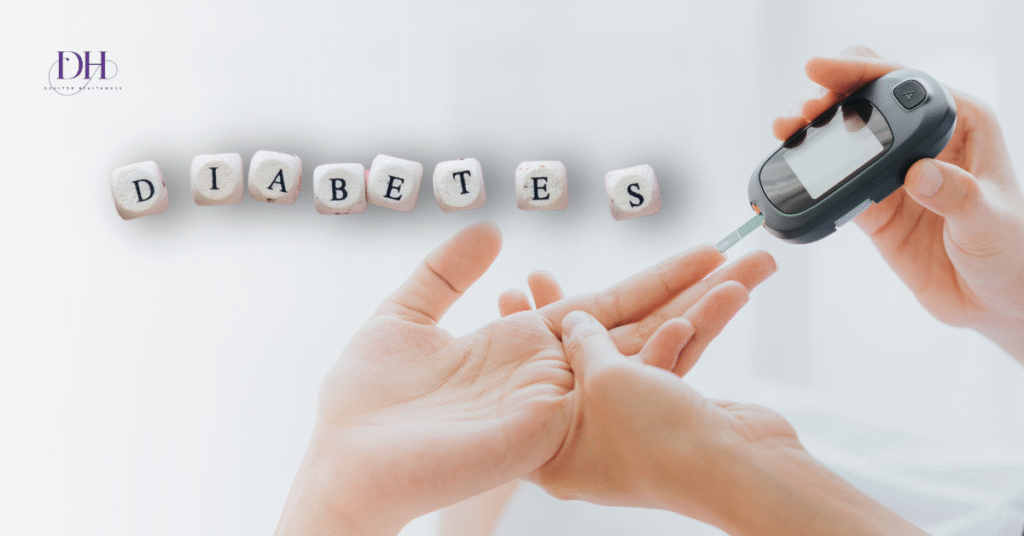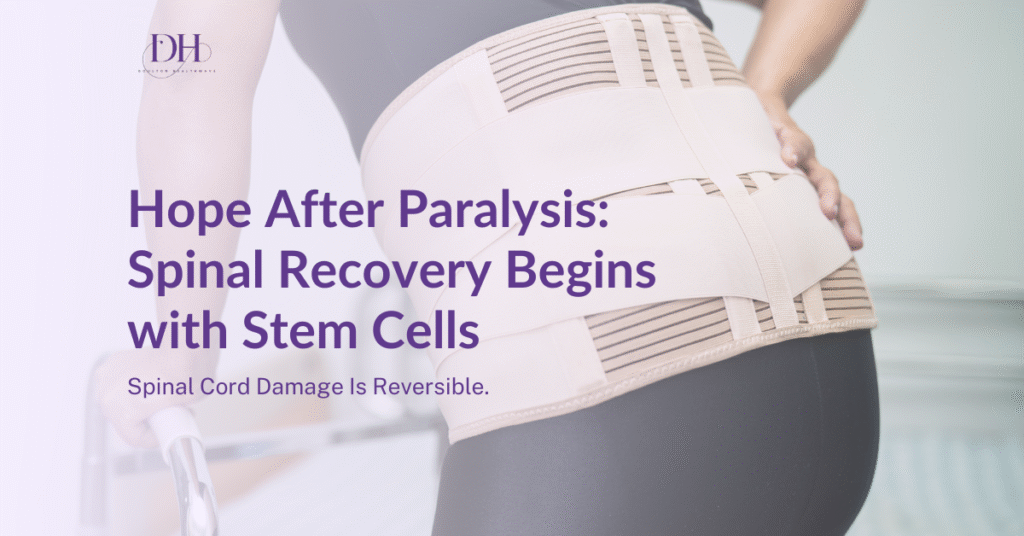A New Dawn for Kidney Health: How Stem Cell Therapy Offers Hope for Chronic Kidney Disease
Chronic Kidney Disease (CKD) silently affects millions across the globe, often going unnoticed until it progresses to its most severe form—kidney failure. Each day, patients face fatigue, swelling, high blood pressure, and the dread of dialysis. But what if the kidneys could be supported to heal, not just maintained? In the evolving landscape of regenerative medicine, Mesenchymal Stem Cell (MSC) Therapy is bringing new hope to individuals battling CKD and kidney failure.
What Is Chronic Kidney Disease (CKD)?
Chronic Kidney Disease (CKD) is a long-term condition characterized by a gradual loss of kidney function over time. Your kidneys play a vital role in filtering waste, balancing electrolytes, and regulating blood pressure. When damaged, their ability to perform these functions diminishes, leading to harmful waste build-up in the body.
Early symptoms of CKD can be subtle and easy to miss. These may include persistent fatigue, decreased appetite, trouble sleeping, muscle cramps, puffiness around the eyes, frequent urination (especially at night), and dry, itchy skin. As the disease progresses, symptoms become more pronounced and may include swelling in the legs or ankles, shortness of breath, and difficulty concentrating.
Common causes of CKD include:
- Diabetes (Type 1 or Type 2): High blood sugar levels can damage the kidney’s filtering system.
- Hypertension: High blood pressure puts extra strain on the blood vessels in the kidneys.
- Glomerulonephritis: Inflammation of the kidney’s filtering units.
- Polycystic kidney disease: A genetic disorder causing cysts to grow inside the kidneys.
- Prolonged use of Non-Steroidal Anti-Inflammatory Drugs (NSAIDs) or other nephrotoxic drugs: These can impair kidney function over time.
- Recurring kidney infections or urinary tract obstructions
CKD progresses through five stages:
- Stage 1 – Mild damage with normal kidney function.
- Stage 2 – Mild reduction in kidney function.
- Stage 3 – Moderate damage; symptoms may begin to appear.
- Stage 4 – Severe reduction in function.
- Stage 5 – End-stage renal disease (ESRD) or kidney failure, where dialysis or transplant becomes necessary.?
CKD is a long-term condition characterized by a gradual loss of kidney function over time. Your kidneys play a vital role in filtering waste, balancing electrolytes, and regulating blood pressure. When damaged, their ability to perform these functions diminishes, leading to harmful waste build-up in the body.
CKD progresses through five stages:
- Stage 1 – Mild damage with normal kidney function.
- Stage 2 – Mild reduction in kidney function.
- Stage 3 – Moderate damage; symptoms may begin to appear.
- Stage 4 – Severe reduction in function.
- Stage 5 – End-stage renal disease (ESRD) or kidney failure, where dialysis or transplant becomes necessary.
Common causes of CKD include diabetes, hypertension, genetic disorders like polycystic kidney disease, infections, and prolonged use of medications like NSAIDs.
Understanding Kidney Failure
Kidney failure is the final stage of CKD. At this point, kidneys operate at less than 15% of their normal function. Patients often experience severe fatigue, nausea, cognitive difficulties, and fluid retention. Dialysis becomes a lifeline, and the wait for a kidney transplant—if eligible—can be daunting.
But now, Mesenchymal Stem Cell Therapy is opening doors previously unimaginable.
What Is Mesenchymal Stem Cell (MSC) Therapy?
Want to dive deeper into how Mesenchymal Stem Cell Therapy works across multiple conditions beyond CKD? Read our in-depth blog post here to explore the science, safety, and regenerative promise of stem cell therapy.
Mesenchymal Stem Cells are adult stem cells found in sources such as umbilical cords, bone marrow, and adipose tissue. They are known for their:
- Anti-inflammatory effects
- Tissue-regenerating capabilities
- Immunomodulatory functions
MSC therapy introduces these powerful cells into the bloodstream or directly to damaged tissue. Once administered, they hone in on inflammation, begin cellular repair, and may stimulate the regeneration of nephrons—the kidneys’ filtering units.
How Stem Cell Therapy Helps CKD and Kidney Failure
Research shows that stem cell therapy can:
- Reduce inflammation in kidney tissue
- Slow or halt the progression of CKD
- Improve glomerular filtration rate (GFR)
- Delayed need for dialysis
- Support blood pressure and proteinuria management
One study published in the Journal of Translational Medicine highlighted that MSCs could reduce proteinuria and inflammation in patients with lupus nephritis—a form of CKD. (View Study)
Another trial demonstrated improved renal function in patients with diabetic nephropathy using stem cells. (NIH Clinical Trials)
Doulton Healthwave uses Passage 2 umbilical cord MSCs, considered highly potent due to their youth and purity. Our stem cells are prepared and administered on the same day to maximize viability and healing potential.
Pre and Post-Therapy: What to Expect
Undergoing stem cell therapy for Chronic Kidney Disease is a guided and patient-friendly process. Knowing what to expect before and after treatment can help maximize your results and reduce any potential risks.
Before Therapy
- A comprehensive medical assessment is conducted to determine your suitability for stem cell therapy.
- Blood and urine tests, imaging, and renal function evaluation will be required.
- Patients are advised to follow a low-sodium, kidney-friendly diet and stay well-hydrated in the days leading up to the procedure.
- Avoid medications that could stress the kidneys, including NSAIDs, unless directed by a doctor.
- A pre-procedure consultation will cover your medical history, expectations, and timeline.
After Therapy
- Patients are closely monitored for response to treatment. Regular follow-ups help evaluate kidney function improvements.
- Maintain a kidney-friendly lifestyle—stay hydrated, manage blood pressure, and steer clear of kidney-damaging medications.
- Most patients report increased energy levels, improved urine output, and more stable creatinine readings.
- Light physical activity is encouraged to support circulation and recovery.
- You may need to continue supportive meds or supplements.
Doulton Healthwave ensures same-day harvesting and infusion of Passage 2 umbilical cord-derived stem cells to preserve cellular potency and enhance healing outcomes.
Recovery is typically smooth, but every patient’s timeline may vary. You’ll be fully supported by a multidisciplinary care team throughout your journey toward better kidney health.
Before Therapy
- Medical assessment, history review, and laboratory screening
- Discussing goals and treatment timeline
- Pre-procedure hydration and low-sodium diet
- Lifestyle education and supportive care planning
After Therapy
- Follow-up appointments and imaging tests
- Continued renal-friendly diet
- Avoiding nephrotoxic drugs
- Hydration and light exercise
Patients often report better energy, reduced swelling, stabilized creatinine levels, and enhanced overall wellness.
Why Choose Doulton Healthwave in Malaysia?
Malaysia is home to some of Asia’s most advanced regenerative medicine programs. At Doulton Healthwave, patients benefit from:
- GMP-certified laboratories
- Experienced clinicians and cell biologists
- Affordable packages for international patients
- Non-invasive administration techniques
Our protocols meet international standards, and we prioritize transparency, patient comfort, and ethics.
👉 Want to learn more about Malaysia’s unique edge in regenerative medicine? Explore Why Malaysian Stem Cells Are Leading the Way in our dedicated blog post.?
Who is a good candidate for MSC therapy?
Patients in stages 2–4 CKD, those experiencing dialysis fatigue, or individuals not suitable for transplant may benefit the most from MSC therapy.
Are there any side effects?
Please specify the context or topic for which you need information on side effects.
How is the stem cell dose determined?
Doses are customized based on your body weight, condition severity, and therapy goals, overseen by Doulton Healthwave’s regenerative specialists.
Can stem cell therapy be combined with traditional treatments?
Yes, it can complement existing renal therapies, potentially enhancing recovery and slowing further deterioration.
Can MSC therapy cure CKD?
No, but it can slow progression and enhance quality of life.
How soon will I see results?
Some patients notice changes within weeks; others over several months.
Is stem cell therapy safe?
MSC therapy has a strong safety profile, especially when using ethically sourced umbilical cells.
MSC therapy has a strong safety profile, especially when using ethically sourced umbilical cells.
Most treatments are non-invasive or involve minor IV infusions.
Are there published studies?
Yes. Read peer-reviewed evidence here:
NIH Diabetic Nephropathy Trial, MSC Use in Kidney Disease




